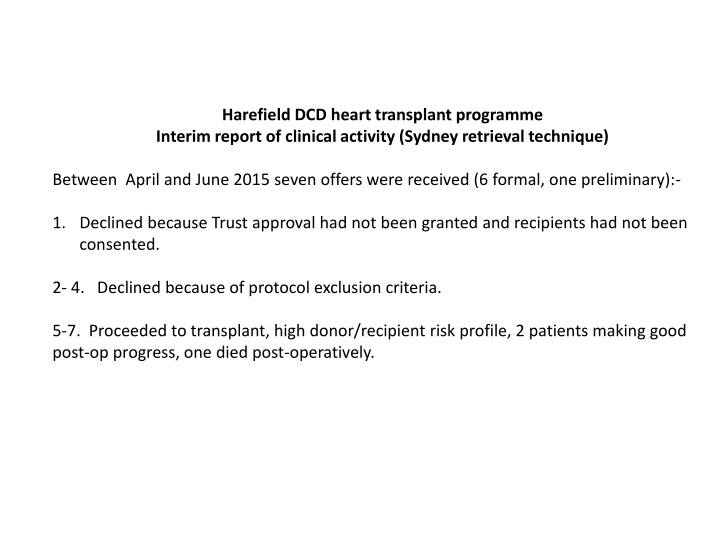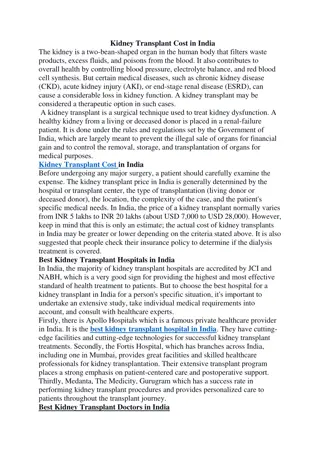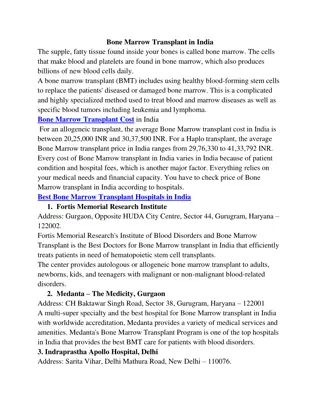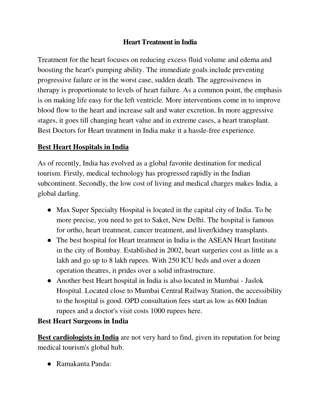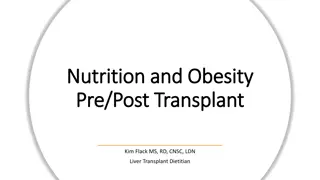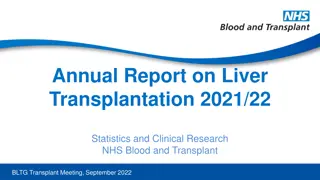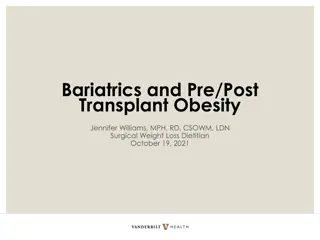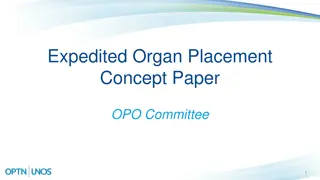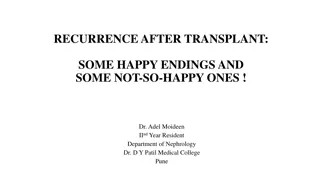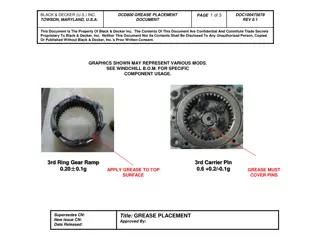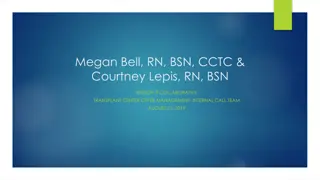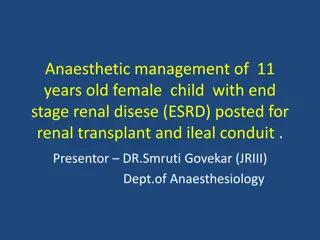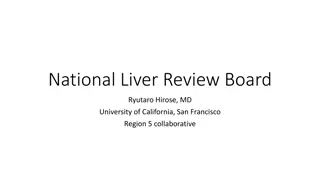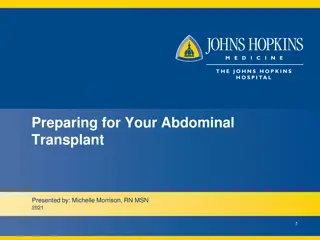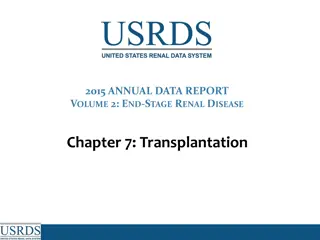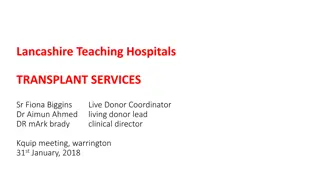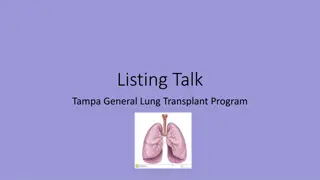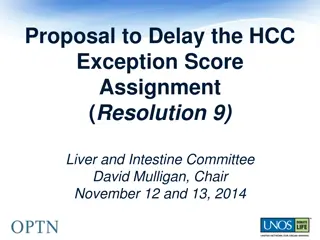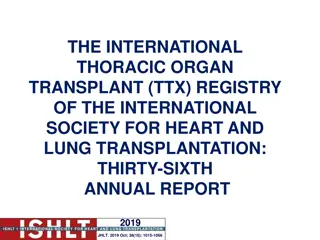Interim Report of Harefield DCD Heart Transplant Programme Clinical Activity
The interim report highlights the clinical activity of the Harefield DCD Heart Transplant Programme, showcasing the feasibility of DCD heart transplantation using various methods. The report discusses donor/recipient risk profiles, feedback from medical teams, and the potential impact on national transplant activity. It also addresses the sustainability of current activity levels and emphasizes the importance of maximizing organ donation effectiveness. Overall, the report underscores the progress made in DCD heart transplants and the commitment to further advancements in the field.
Download Presentation

Please find below an Image/Link to download the presentation.
The content on the website is provided AS IS for your information and personal use only. It may not be sold, licensed, or shared on other websites without obtaining consent from the author.If you encounter any issues during the download, it is possible that the publisher has removed the file from their server.
You are allowed to download the files provided on this website for personal or commercial use, subject to the condition that they are used lawfully. All files are the property of their respective owners.
The content on the website is provided AS IS for your information and personal use only. It may not be sold, licensed, or shared on other websites without obtaining consent from the author.
E N D
Presentation Transcript
Harefield DCD heart transplant programme Interim report of clinical activity (Sydney retrieval technique) Between April and June 2015 seven offers were received (6 formal, one preliminary):- 1. Declined because Trust approval had not been granted and recipients had not been consented. 2- 4. Declined because of protocol exclusion criteria. 5-7. Proceeded to transplant, high donor/recipient risk profile, 2 patients making good post-op progress, one died post-operatively.
Interim conclusions Papworth and Harefield have demonstrated DCD heart transplantation is clinically feasible using various methods all characterised by immediate normothermic reperfusion of donor heart for resuscitation, preservation and assessment (OCS only, NRP/OCS, NRP only). Universally positive feedback from SNODs, NOK and abdominal organ retrieval teams. Ante-mortem echocardiographic assessment feasible via various methods. DCD heart transplantation feasible in spite of adverse donor/recipient risk profile in keeping with DBD OCS experience1. Papworth and Harefield programmes mutually supportive. Considerable activity in first quarter which probably reflects that DCD donor heart pool is greater than originally estimated. 1. Garcia S ez et al. Ann Thorac Surgery 2014;98(6):2099-2105
The DCD donor heart pool paradox NHS BT/Simon Messer estimated the UK adult DCD pool to be approx. 50 per year If retrieved fully, this would amount to a 30% increase in national activity. However: Apr 13-March 14: 167 DBD adult heart transplants In 3 months: 8 transplants in Papworth/Harefield (restricted) DCD heart zones If this activity continues, it will yield 32 DCD hearts annually in the restricted zone i.e. 32DCD/167 = 19 % increase in national activity Papworth/Harefield DCD catchment yielded 99 donors in 2014/15 The total UK DCD donor number was 540 Thus, the current DCD heart catchment accounts for 18.3% of the total Therefore: the potential UK DCD heart pool is 100 x 32/18.3 = 174 per year
Further Activity is Unsustainable Based on current activity level, we predict that Harefield s service evaluation (6 OCS cases) will be completed by end Q3 2015, i.e. much earlier originally anticipated. Early discussion of how to avoid funding moratorium of established DCD programmes and national loss of potential DCD hearts is mandatory .
Points of Agreement? We are all committed to utilising the gift of organ donation to best effect on behalf of both donor families and those on the transplant waiting list The UK is leading the world in the utilisation of DCD organs and could now also lead with a national DCD heart initiative In the last few months we have clearly demonstrated that DCD hearts can now be transplanted, even with an adverse donor/recipient risk profile Short term outcomes are excellent, long term outcomes will be monitored closely but have the potential to be equivalent or better than DBD outcomes:
We face two important and urgent questions 1. How can we best expand to more potential DCD donor sites to ensure we don t waste any viable hearts? 2. What action, by whom and when, will be taken to fund this potentially remarkable new donor resource?
Moving forward Project 30 (i.e. working title not yet ratified) Need to establish a task force to ensure safe and rapid roll-out bearing in mind Harefield and Papworth are the only centres currently with OCS experience in the UK. The establishment of DCD heart programmes has significant implications from the point of view of - personnel - training - equipment (Harefield have purchased a second OCS console from charity funds) - financial resources - logistics - experience These implications need to be comprehensively assessed in the light of the recent NORS review and its recommendations. Such an initiative would also contribute significantly to realisation of the TOT vision goals.
